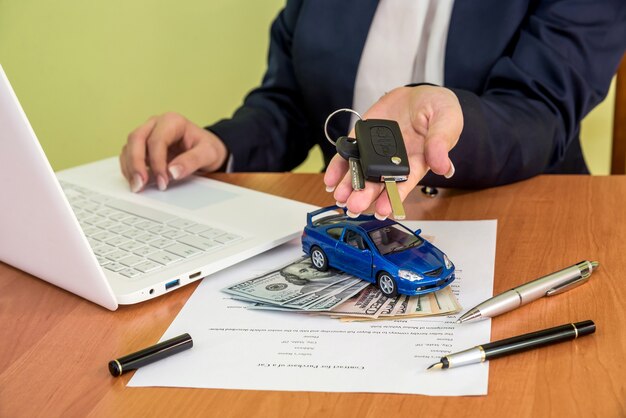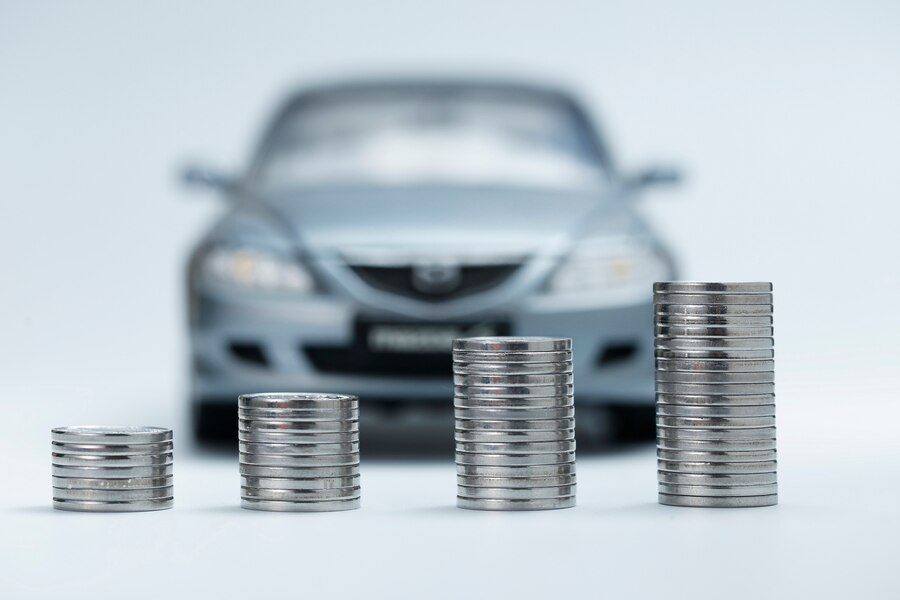Car Depreciation: What Is It And How To Deal With It

Table Of Contents
Singapore is known to have one of the most excellent public transportation systems in the world. Owning a car is no longer a necessity but a luxury. So, for car owners, understanding car depreciation in SG is a must. This article will explain what car depreciation is and how Singaporeans can handle it.
What Is Car Depreciation?

Car depreciation is a term that refers to when a vehicle’s value decreases over time due to wear and tear, usage, and market demand. It is universally accepted that once you drive a new car off the dealership lot, its value begins to decrease.
Factors Affecting Car Depreciation
To understand car depreciation, we must take a look at factors like the brand, model, maintenance, and usage habits.
- Brand and Model: A vehicle’s make and model play a significant role in determining its depreciation rate. Some brands and models hold their value better than others due to their reputation, reliability, and popularity.
- Mileage: A car’s mileage goes up the more it is used. The higher its mileage, the greater the depreciation. High mileage causes wear and tear which impacts the vehicle’s overall value.
- Condition: Regular maintenance helps slow down depreciation. Any signs of neglect, such as dents, scratches, or mechanical issues, can contribute to a faster decline in value.
- Market Demand: The demand for a particular make or model in the used car market can impact its depreciation rate. Popular cars with high demand tend to depreciate more slowly than less sought-after models.
Why Does Car Depreciation Matter in Singapore?
In Singapore, the expenses associated with owning a car go beyond the initial buying cost. The country’s Certificate of Entitlement (COE) system, along with additional taxes and fees, makes car ownership a significant financial obligation.
This is why a lot of Singaporeans consult with a registered money lender first to explore their financing options.
Understanding car depreciation is crucial for Singaporean car owners as it directly influences the resale value of their vehicles.
How to Deal With Car Depreciation in Singapore

Having examined the factors affecting car depreciation, let’s now turn our attention to practical strategies for car owners to navigate this economic aspect wisely on the roads of Lion City.
- Choose Wisely: Research and choose a car model that is known for holding its value well. Resale value is a critical consideration in the car selection process.
- Regular Maintenance: Keep up with routine maintenance to ensure your car is in optimal condition. Regular servicing, timely repairs, and proper care can slow down the depreciation process.
- Mindful Driving: Be mindful of how you drive. Aggressive driving, frequent speeding, and abrupt stops can contribute to increased wear and tear, accelerating depreciation.
- Explore Leasing: In Singapore, car leasing can be a viable alternative to ownership. Leasing allows individuals to use a car for a set period without the long-term commitment and the concerns of depreciation.
The Factors That You Have To Consider With Car Depreciation

Vehicle depreciation is something other than what you should be aware of in case you are looking to sell or trade-in. Below, I will discuss several factors you must consider with car depreciation.
1) Mileage
One of the most critical factors in car depreciation is well-known and self-explanatory. On the other hand, the mileage on your vehicle will directly impact its value. The more depreciation, the more mileage, as most vehicles don’t see the road past 400,000 km. Therefore, if you and Jim next door have the same Honda Civic, except he drives 10 km each day. Here you have to go 50 km per day. In this case, your Civic will undeniably depreciate faster.
2) Newer Models With Necessary Upgrades
Car manufacturers release new models of vehicles in case the car model has necessary improvements/upgrades. Aside from that, the older versions of that same model will frequently depreciate. On the other side, this will also be able to work the other way. Therefore, if a model has been discontinued, the older car models won’t depreciate as fast as possible.
3) The Make And Model
Specific car models perform to hold their car value more than other car models. iSeeCars.com conducted a study where it found that a wide range of electric vehicles depreciates as much faster as other supervehicles. Certain SUVs, trucks, and other sports cars depreciate slower over five years. Aside from that, Jeep and Toyota have the lowest car depreciation rates among other car brands, while BMW has the highest car depreciation rate.
4) Customizations
You might think at a certain point in time where your neon car is and where you can add a high spoiler, which seems cool at that moment. Regardless of how cool you think, customized vehicles may be willing to be bought by fewer people.
Read Also: Used vs. New: Navigating Car Loan Options For Smart Ontario Buyers
5) Condition
Another factor that you have to consider for car depreciation is the condition. This factor is as surprising as it would hold its actual value. If your vehicle has a broken windshield and cuts along the driver’s side, this might cause a considerable loss of the exact value of the car.
Let’s Talk About How Does Car Value Affect Insurance Rates

The car depreciation affects the car insurance rates. Above all, the insurance rates are crucial when calculating car depreciation values. Below, I am going to discuss how car value affects insurance rates.
1) The more valuable your car is, the more cost it must handle to insure this. If you own an expensive car, then it must be repaired. The repair costs are more than if you have a cheaper car that needs the repairs.
2) In case the car is not worth based on the ton of money, then the high coverage maximums might not be necessary.
3) Older vehicles with several low safety ratings have the latest and most advanced safety features. This typically won’t benefit you from any other probable safety device discounts.
Wrapping It Up
Car depreciation is an inevitable aspect of owning a vehicle in Singapore, and understanding its nuances is crucial for making informed decisions. By choosing the right car, maintaining it diligently, and being mindful of driving habits, Singaporean car owners can navigate the world of car depreciation with greater financial prudence. Whether for the convenience of daily commuting or the joy of weekend drives, staying informed about car depreciation ensures a smoother ride on the roads of the Lion City.
Read Also:
Tags:
You May Also Like

March 15, 2022
Warren Bowie & Smith: Details, Pricing, & Features

January 14, 2021
What Is Stimulus Package And How It Will Affect The Economy?

October 5, 2022






















